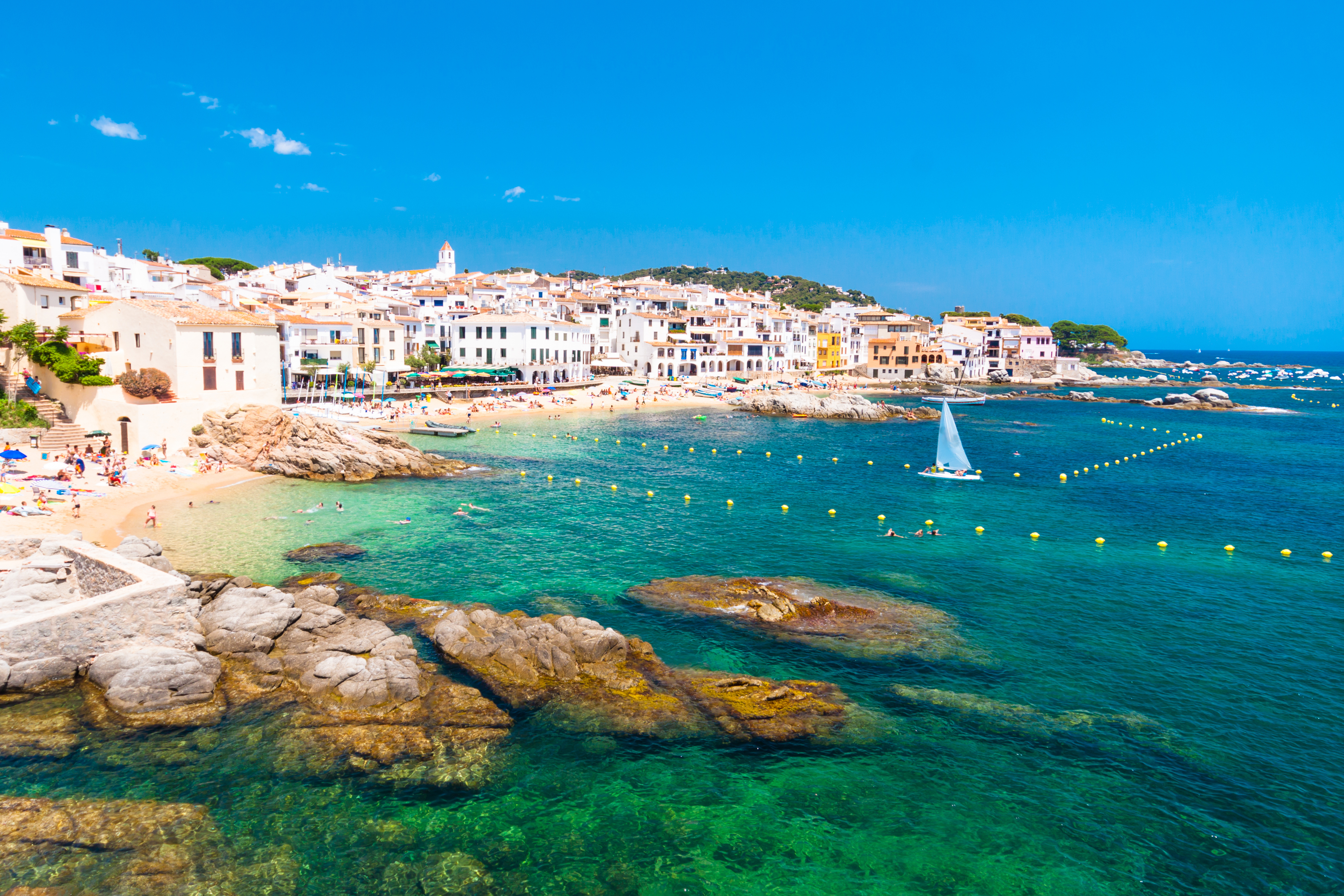Life in Spain can be considered comfortable and affordable. The country’s economy is considered developed and industrialized. Its annual GDP is at EUR 1.46 trillion, with an increase of 0.7% over the last quarter. Spain belongs to the EU and the EEA, which favorably affects all areas: social, political, and economic. The state receives subsidies and development strategies that align with effective European standards.
As a result, the country’s authorities ensure an optimal standard of living and social security, as well as conditions for decent earnings. Various immigration programs are open to those who wish to obtain a Spanish residence permit, and eventually permanent residence and/or citizenship. In addition to offering great visa freedom, a Spanish passport allows you to live in any European Union country.

Quality of life in Spain
To most objectively assess the standard of living in Spain, one must consider various ratings. For example, the United Nations Organization publishes such data annually. The UN’s selection is based on the human development index, which is composed of surveys and accurate statistics. According to the latest published report, Spain ranks 27th out of 193 countries and demonstrates excellent indicators in all categories, including:
- Life expectancy
In Spain, the indicator is 83.9 years, which is high for Europe and the world. For comparison, the highest age in the ranking is 84.3 years. Spain’s high life expectancy indicates that its medicine, ecology, and nutrition are well developed.
- Average study duration
This criterion reflects the level of education development and accessibility in the country. In Spain, these figures are 17.8 and 10.6 years, respectively, which are fairly high. Many residents of the country have higher education, and pursuing it is valued by the younger generation.
- Gross national income per capita
In Spain, it is USD 40,043 — an average result by European standards. GDP per capita reflects how much money each resident would receive if the country’s entire gross national income were divided equally among them. In general, it is an important indicator of a country’s economic development.

Pros and cons of living in Spain
The pros and cons of life in Spain are quite relative because they depend on a person’s personal priorities, requests, financial capabilities, and the purpose of moving. Therefore, it is more accurate to consider all aspects generally with existing features than to divide them into positive and negative. This way, everyone will be able to highlight the advantages of life in Spain and prepare for possible disadvantages.
Mediterranean climate and ecology
A country with 320 sunny days a year is attractive to many. Spain has no harsh winters or gloomy autumns with prolonged rainfall, and its proximity to the sea allows for vacations without long journeys. From this point of view, life in Spain is quite comfortable. At the same time, the country’s climate is diverse. Even snow lovers can find ski resorts in Spain, such as Sierra Nevada.
As for ecology, the situation is favorable as well. The government has introduced legislation to address garbage disposal and processing, as well as water and air pollution. According to Yale University’s environmental efficiency index, Spain ranks 27th in the world.
Mentality and local culture
Spaniards are open and friendly, which helps foreigners adapt quickly. Locals are always smiling, complimenting others on the street and ready to help if necessary. Overall, they create an atmosphere of fun, lightness and support. Consider that Spaniards really appreciate their national and family traditions, respect the older generation, love gathering with loved ones, and enjoy celebrating holidays with large groups of people.
Foreigners can easily integrate into Spanish society if they follow current habits and share values. At the same time, be prepared for the fact that life in Spain is quite free. No one is in a hurry, and everyone loves to be late and break promises.
Service and customer care
Due to the country’s high tourist attractiveness, there are many leisure and entertainment options. However, a downside to life in Spain is that the service leaves much to be desired. Staff are overloaded, and Spaniards have a measured and calm approach to everything, including performing their work duties. Additionally, as in other European countries, most shops and shopping centers are closed on Sundays. There are also many holidays in Spain when the hospitality industry practically stops.
Language and communication
There are several aspects of the language that are difficult to grasp. Spanish is completely different from Slavic languages and English. Locals mainly communicate in their native language, so foreigners will definitely need to learn it for successful adaptation.
On the other hand, linguists evaluate Spanish as quite easy to learn. Its main feature is that it is read the same way it is written. There are no large numbers of complex sounds, and clear rules of stress apply. According to statistics, studying this language takes almost half the time it takes to study English.

Internet and connection quality
There are no problems with high-quality internet in Spain. Currently, 5G coverage reaches almost 80% of the population, and it is planned to expand to 90% in the near future. Broadband internet with speeds of 100 Mbps is available to 95% of people in urban areas and 80% of people in rural areas.
Spanish cuisine and food
Spain is a land of fresh, high-quality fruits and vegetables. Locals have almost year-round access to these vitamin- and trace element-rich products. The country also grows grain and grain-combination crops. Spain has a developed meat industry, where Iberian pigs are raised for their meat, which is used to make Jamón Ibérico and fuet salami.
Medicine and social security
Spain takes 7th place in the Health Index ranking of countries. The state has a highly developed medical system with quality care and modern approaches, which contributes to the high life expectancy of men and women, as well as the popularity of medical tourism.
Reviews from foreigners who have moved to Spain confirm that health insurance is inexpensive yet comprehensive. The social system also operates efficiently; residents can count on financial support from the state in different life circumstances.
Obtain a Spanish residence permit for new opportunities:
- Live in a developed country;
- Residence permits for all family members;
- The prospect of permanent residence and citizenship;
- Visa-free travel in Europe.

Leave an application and get a consultation specialist
Banks and government services
Judging by the reviews of expats, this aspect is not a plus of life in Spain. Bureaucracy in the country is still prevalent, so if you need to contact any government agencies, be prepared for a lengthy process. It is important to comply with all the rules for preparing documents because any inaccuracies will lead to the procedure having to be redone.
Education opportunities
Based on the UN’s quality of life rating for [current year], which also evaluates countries according to this criterion, we can draw conclusions about Spain’s advanced position. There are many schools in the country, including state, private, and international schools. Each student receives enough attention in the educational process due to the optimal ratio of students to teachers. The annual tuition for international students is usually EUR 5,500–7,000, though there are scholarship programs and grants available.
Housing and transportation
There are no problems with real estate in the country. A variety of buying and renting options are consistent with the level of demand. Housing is affordable in each case, and profitable mortgage programs have been developed for acquiring it in Spain. Thanks to common lending practices, young families have the opportunity to obtain living space relatively quickly. Public transportation is modern, comfortable, and runs on time.

Employment and business Environment
In Spain, unemployment is fairly high — according to the latest data, the unemployment rate is 12.29%. Therefore, when choosing candidates, priority is given to local residents. At the same time, foreigners can count on finding suitable vacancies in popular industries such as healthcare, education, logistics, and IT. Many people obtain a nomad visa in Spain, which allows them to work remotely for a foreign company and live in a comfortable European state.
The country offers favorable business climate, including reduced tax rates for novice entrepreneurs and government programs. New companies with small turnovers, industrial enterprises, and freelancers can receive specialized consultations, free services, and financing. Spanish migration legislation provides a startup visa for novice entrepreneurs.
If you work online, you can apply for a Spanish visa and residence permit on this basis without worrying about finding a job in person. Lawyers can provide more information about the and assist with the application process.
Cost of living in Spain
The cost of living is relatively low by European standards. According to Numbeo, it costs about EUR 700 per month to live in the country. This amount does not include rent, but the ratio of expenses to income is still good. With this amount, a Spanish resident can afford high-quality nutrition, rest, entertainment, and updating the wardrobe as necessary. The following categories can be used to evaluate living conditions in Spain in terms of prices:
- Rent and purchase of housing
Real estate in Spain is relatively inexpensive. On average, you can rent a one-room apartment for EUR 700–900, but prices vary depending on the city and region. The average cost per square meter for purchasing housing is EUR 2,700, and the interest rate on a mortgage is 3%.
- Food
A basic food basket for one person for several days costs EUR 50–60. Lunch for two at a middle-class restaurant costs about 50 euros. You can buy a cup of coffee for EUR 1.80 and a bottle of water for EUR 1.50.
- Utilities and communication
In Spain, utility payments are low, which is partially due to the soft and warm climate. A monthly bill for electricity, water, garbage removal, ventilation, and heating for an 85 m² area is about EUR 130. Internet (EUR 30) and mobile communications (EUR 18) are paid separately.
- Entertainment and leisure
A monthly subscription to a fitness club costs about EUR 40, and an average movie ticket costs EUR 8. New branded jeans cost EUR 70 , and shoes cost EUR 75–85.
- Transportation
A public transportation ticket costs EUR 1.50. Locals are more likely to use subscriptions, which can save 30 euros per month. Owners of personal cars should take into account the price of gasoline, which is EUR 1.60 per liter.
Wages and salaries
Salary in Spain depends on several factors, including area of specialization, qualifications, and age. Applicants with higher education can obviously apply for more prestigious and better-paid positions. As for age, experience is a factor here — young specialists are offered lower salaries, but their income level increases as they acquire skills. The government strives to minimize gender inequality in wages, but much depends on the employer. Cases of underestimating the salaries of those performing the same tasks as men are not excluded.
The average monthly salary in Spain is about EUR 2,500. The minimum income for the population is EUR 1,130. To better evaluate earnings prospects, consider which professions in the country are higher paying and which bring low income according to the table:
| Profession | Salary, € |
|---|---|
| IT-specialist | 2 300 |
| Lawyer | 2 200 |
| Accountant | 2 000 |
| Driver | 1 800 |
| Manager | 1 800 |
| Construction Worker | 1 500 |
| Cashier | 1 400 |
| Nurse | 1 200 |

Taxes
Spain has a progressive tax system where tax rates increase with income. The income tax rates for individuals are shown in the table below:
| Annual income (€) | Tax rate |
|---|---|
| Up to 12 450 | 19 % |
| From 12 451 to 20 199 | 24 % |
| From 20 200 to 35 199 | 30 % |
| From 35 200 to 59 999 | 37 % |
| From 60 000 to 299 999 | 45 % |
| From 300 000 | 47 % |
As for businesses, the total corporate tax rate is 25%. Newly established companies can use a reduced rate of 15%.
Social security and benefits
The concept of the middle class is difficult to define, but according to Spanish statistics and surveys, more than half of the population considers itself middle class. This is an optimal indicator for a developed country and suggests that the population has an acceptable standard of living. Most residents have an average or above-average income, and those with minimal earnings can also cover their basic needs. An effective social system supports the population in various life circumstances.
Retirees and pensions
One positive feature of life in Spain is the generous retirement benefits. Residents are typically sent for a well-deserved rest at 65 years old, but there may be other conditions, such as 66 years and six months (depending on the duration of insurance premium payments), or vice versa, earlier than expected. The exact amount of the payments depends on several factors, including work experience and the amount of insurance premiums paid throughout one’s professional career.
Over the past year, the average insurance payment increased by 3.8% — from EUR 1,197.90 to EUR 1,243.30 per month. Minimum payments are EUR 11,552.80 per year for individuals without a spouse and EUR 14,466.20 for individuals with a spouse. In general, benefits for pensioners correspond to the country’s minimum wage, ensuring that older adults can meet their basic needs.
Parental payments and family support
Spain’s social system provides benefits related to the birth and upbringing of a child. Upon childbirth or temporary disability, parents receive assistance up to a maximum of EUR 4,495.50. Additionally, payments are provided in cases of child disability, large families, or single parents. You can count on state assistance if your family’s income is at or below the minimum.
The amounts of benefits are not fixed and are calculated individually. For example, poor families with children under three years old may receive EUR 115, children between 3 to 6 years old may receive EUR 80.50, and children between 6 and 18 years old may receive EUR 57.50.
Unemployment benefits
Spain has a system that protects people against unemployment. The amount is calculated individually but cannot be lower than EUR 560 per month for single persons and EUR 749 for residents with children. Maximum limits are also set at EUR 1,225 and EUR 1,575, respectively. Payments are made for a period ranging from 120 to 720 days, depending on how long the applicant paid insurance premiums in the previous six years.
Business support
Spain is an attractive location for conducting entrepreneurial activities. In addition to the standard tax rate, the country offers reduced fees for certain businesses. For instance, new companies can pay a 15% profit tax instead of 25%. A reduced rate of 23% is available for enterprises with a net turnover of less than EUR 1,000,000 in the previous tax period.
Immigration to Spain: opportunities and pathways
Spain is an attractive country for immigration due to its interesting programs. Favorable options are available to foreigners with different plans.
For instance, individuals who wish to immerse themselves in the European business environment can obtain a residence permit through a startup without making fixed financial investments to establish their own business in an EU country. Those who work remotely and are satisfied with their earnings can apply for a digital nomad visa, which allows them to apply for a residence permit in Spain.
Foreigners with a stable income from business abroad or real estate rentals can move based on their financial independence. This residence permit does not allow you to work in Spain, but it does allow you to live comfortably.
Through each program, foreigners can eventually claim Spanish permanent residence and citizenship. Permanent residency becomes available after 5 years of continuous residence in the country. Spanish citizenship can be granted after 10 years.
The best Spanish cities for living
When planning a move to Spain, consider the living conditions in a particular city, in addition to other factors. Some people want to live in a megalopolis with wide career prospects, while others value ecology and a calm environment.

The best regions of Spain for living:
- Barcelona
It is considered one of the most comfortable cities in Spain, combining an active cultural and business environment with an international society, all while maintaining relatively affordable prices. It is considered one of the most popular startup centers in Europe. The city has many schools with various programs, including international ones, to effectively educate children. Potential drawbacks include a large number of tourists and the slightly unique Catalan language, which differs from standard Spanish. Monthly expenses for one person total EUR 780, and you can rent a one-room apartment for EUR 900–1,200.
- Madrid
The capital is traditionally considered one of the best cities in Spain for living. There are many opportunities for work and personal development, as well as an active business environment and cultural and educational events. It is easy to find suitable programs and interesting leisure activities for children. The cost of living in the capital is above average. About EUR 800 are required per month, and renting a one-room apartment costs between EUR 950-1,300. Keep in mind that the city has an active rhythm of life, a noisy center, and often crowded transportation.
- Valencia
The city is relatively small but is developing and transforming actively. Its location on the Mediterranean coast creates a calm and relaxed atmosphere. Valencia has a mild climate, a developed culinary scene, and a relatively affordable cost of living — one requires no more than EUR 700 per month. Renting a one-room apartment costs EUR 700–900. Employment options are limited, but the region is a promising place for investment. While it may not be difficult to enroll children in local daycare and schools, there may not be enough options for international programs.
Immigration assistance
In order to successfully move to Spain, one must carefully study the legislation, select the optimal program, and correctly implement all the necessary steps. To avoid mistakes and complete the process on time, consider enlisting professional support. Specialists carefully monitor changes in legislation and follow the most up-to-date algorithms.

















